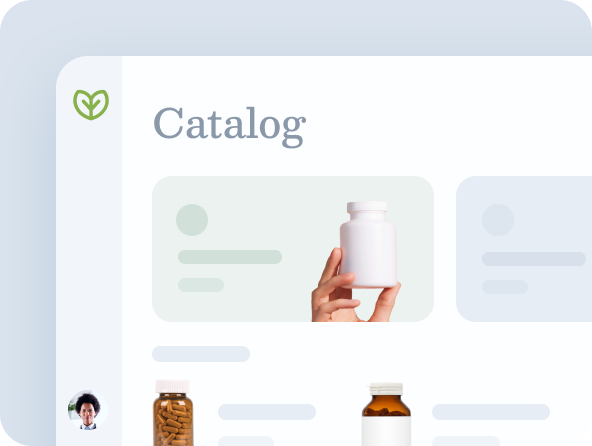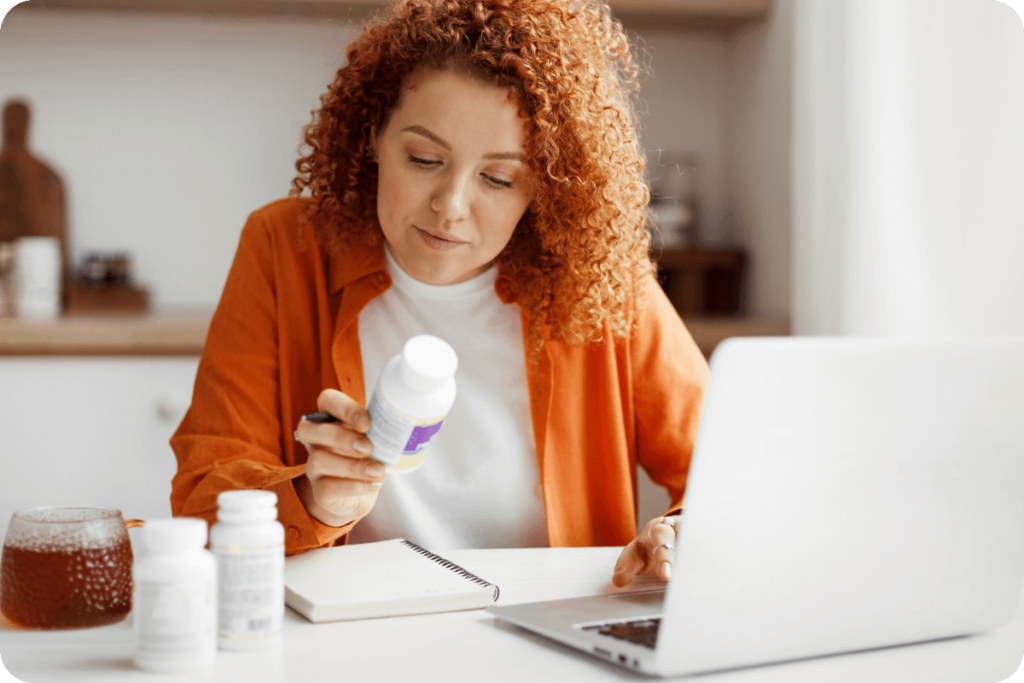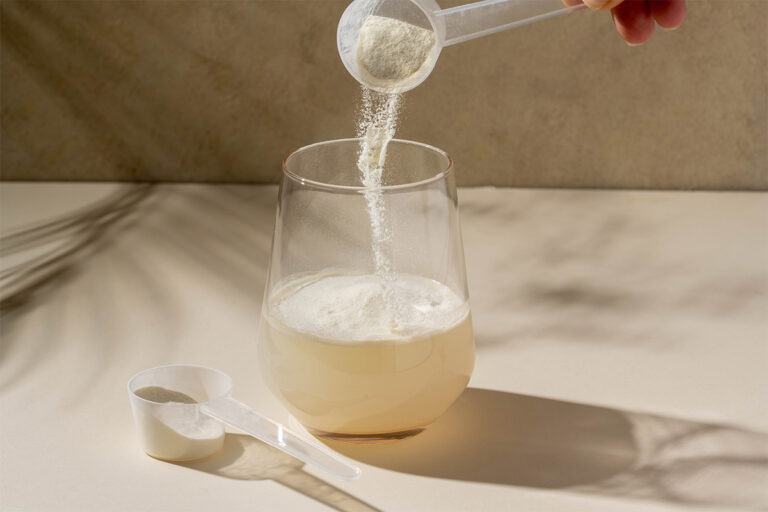The dietary supplement industry was already on an upward trend but has grown exponentially in recent years. In April 2020 in the United States, the supplement market had grown 44% since the previous year. (7) With this growth came an increase in online marketplaces selling supplements, with Amazon being the most popular and convenient option. However, emerging information shows an increasing amount of safety and quality concerns related to purchasing supplements on Amazon.
Ready to start delivering better patient care?

The online supplement market on Amazon
A 2022 article estimates that eCommerce represents 15% of the total supplement market, with 77% of supplement sales happening through Amazon. (4) However, Amazon’s third-party selling model allows anyone to create a seller account, not just reputable businesses. This means that while there are many legitimate supplement brands selling their products on Amazon, there are also third-party sellers who purchase from legitimate brands and may fraudulently resell their products. In these cases, the supplement inside the bottle may be swapped out for a counterfeit product, or an expired product may be relabeled to appear fresh and new.
There are also companies that may look legitimate, but they use low-quality ingredients and don’t have their products third-party certified for quality assurance. Amazon is a large company with numerous warehouses spanning the continent. As a result, there are challenges in regulating inventory. Since Amazon doesn’t stock all of the supplements they sell in their warehouses, it can be difficult to guarantee the storage and handling conditions of these third-party sellers.

Quality control issues when buying supplements on Amazon
In 2021, an evaluation of 30 dietary supplements purchased on Amazon was carried out, and only 13 of the 30 were found to have accurate labels. Of the remaining 17 with inaccurate labels, 13 of them had ingredients listed on the label that weren’t found in the product itself. Nine of the 17 had ingredients detected in them that weren’t listed on the product label. None of the 30 products tested had third-party certification seals on their packaging. (4)
Another study looked into 175 creatine products available on Amazon. Creatine monohydrate (CM) is an established, effective form of creatine; however, the studied products contained 16 other forms of creatine—88% of which have been identified as having limited or no supporting evidence for their bioavailability, efficacy, or safety. (5)
A third evaluation studied 14 of the most popular colloidal silver products sold on Amazon. The results found that 70% of them contained only ionic silver, and yet over half of them were being marketed by the manufacturers as colloidal silver, despite there being major differences between the actions and efficacy of ionic and colloidal silver. (6)
All of these cases demonstrate unreliability and lack of quality controls in supplements sold on Amazon. Whether from counterfeit products or inaccurate labeling, consumers may be left questioning what they’re buying and putting into their bodies.
Counterfeited supplement brands on Amazon
Fraudulent sellers who impersonate well-known brands rely on and take advantage of the trust a brand builds with its consumers. One popular supplement manufacturer, NOW Foods, released a statement in 2023 notifying their customers that a fraudulent seller had been selling 11 different counterfeited NOW products for several weeks. When notified, Amazon agreed to block all sales from that seller and issue a recall. (8)
Another supplement brand, Regenexx, notified their consumers of counterfeit versions of their supplements being sold on Amazon. They theorized that this happened because, due to their typically higher price point, fraudulent sellers could make a greater profit margin impersonating them by using cheaper ingredients and taking advantage of their brand name reputability to justify the price. (3)
In 2023, a man was arrested for selling counterfeit versions of products from both Pure Encapsulations and Nature M.D. on Amazon—both well-known and popular supplement brands. (10) This unfortunately means that looking for reputable brand names alone may not be enough; consumers need to check product labels and search for signs of fraudulence before buying a product.
Amazon’s policy and regulations
According to their seller information pages, Amazon requires sellers to verify that supplement products in the sexual enhancement, weight management, and sports/bodybuilding categories meet Amazon’s policy via third-party testing and document verification on an annual basis. Products in those categories must meet the following criteria:
- Contains the ingredients and dosages claimed on the product label
- Doesn’t contain contaminants that may pose health or regulatory concerns
- Doesn’t contain undeclared pharmaceutical ingredients
- Doesn’t make illegal or disease claims
- Is labeled according to FDA guidelines
- Is manufactured in a facility that is compliant with the FDA’s current Good Manufacturing Practices (cGMPs) (1)
In addition, Amazon’s seller compliance checklist requires packaging to adhere to the following standards:
- Be new and unused
- Be sealed in the original manufacturer’s packaging
- Clearly display the manufacturer or distributor’s identifying codes (i.e., matrix codes, lot numbers, or serial numbers) (2)
As of April 8, 2024, the following third-party verifiers have been approved by Amazon to verify products being sold on the platform:
- Eurofins
- NSF International
- UL Solutions

If the required testing information isn’t provided upon request, Amazon policy states that they reserve the right to take action, including but not limited to removing the product from the platform. (2) However, since the product samples are sent by the sellers to the third-party verifiers for testing rather than being sent by Amazon directly from their warehouses, this can create a conflict of interest. Fraudulent sellers could send a legitimate product for testing but continue to actually sell counterfeit products to customers.
Safe shopping tips on Amazon
In 2012, the Department of Defence launched an educational program called Operation Supplement Safety (OPSS) as a way of increasing awareness around supplements and helping consumers learn how to choose safe supplements. As part of this program, the OPSS Scorecard tool was developed. This scorecard is a list of yes or no questions to answer based on the product’s label information, prompting consumers to check for:
- A third-party certification seal
- Ingredient dosing
- Questionable claims or statements
- Whether the amount of caffeine listed is less than 200 mg per serving
- Words such as proprietary, blend, matrix, or complex
Once all the questions have been answered, a score is given for the product. A score of 4 or more suggests that the product is likely safe, whereas a score of less than 4 suggests that it may not be safe. (4)
This is a great tool to use when buying supplements on Amazon or any other online source. However, while helpful, it’s only useful when assessing products that are accurately labeled. Given the amount of counterfeit products and mislabeled supplements on Amazon, this still leaves a lot to chance. The safest option is identifying reputable online sources and sticking to those.
Prioritize safety and quality when buying supplements online
In conclusion, while Amazon may appear to be the easiest or most convenient source for supplements online, you may be sacrificing quality for convenience and even risking your safety or the safety of your loved ones. When buying supplements online, always make sure to read the product label and check for the supplement’s efficacy, safety, and quality. Purchasing from reliable and practitioner-grade sources like Fullscript means you’ll always know what you’re consuming, and you can pursue your health goals with confidence that your supplements are safe.
Ready to start delivering better patient care?






